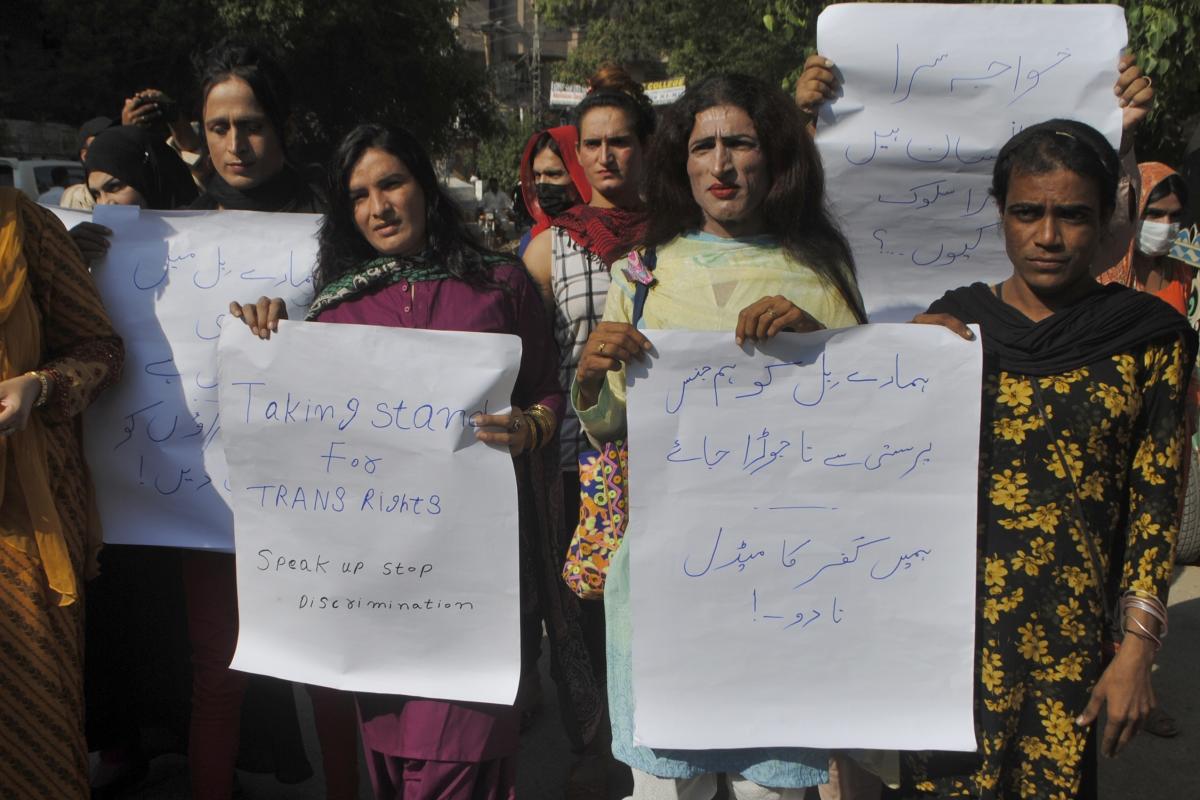
ISLAMABAD (AP) — Pakistan on Friday launched a hotline for transgender people in an effort to protect them from discrimination and harassment, a senior government official said.
Trans people in Pakistan are considered outcasts by many, especially in conservative areas in the country, where they are often sexually abused, assaulted and even murdered. They also hesitate to enroll in regular schools to avoid discrimination.
Salman Sufi, an adviser to Prime Minister Shahbaz Sharif, said in a tweet that the much-awaited hotline for the protection of trans people from discrimination and harassment had been set up and was live.
The hotline is connected to top police officers and the Ministry of Human Rights, he said.
“We are glad that this so-called hotline has been set up for us,” Almas Bobby, a spokesperson for transgender people in Pakistan, told The Associated Press by phone. Bobby said in most cases of harassment, trans people are either beaten, arrested or publicly harassed by police across the country.
“How can we can call on this hotline when our phones are snatched? When we are arrested like a robber from wedding parties where we have to perform and earn? Who harasses us the most?” Bobby said. “Yes, indeed, the police. And we will have to call the police to seek justice.”
The hotline comes as the government tries to pass an amendment in its transgender rights bill, which will let trans people choose their gender identity for previously issued government documents, educational certificates and national identity cards.
But the proposed amendments have caused controversy, with hardline clerics opposing them.
Although Pakistan has in recent years made some progress on transgender rights in the Muslim-majority country, human rights experts say a lot is still to be done to ensure recognition of trans people on a social level.
Bobby estimates there are around 10,000 trans people living in Pakistan.
Last year, Pakistan opened its first government-run school for transgender students in the central city of Multan, promising to set up more such schools in the future.
In 2019, Pakistan’s Supreme Court issued a landmark ruling designating trans people as a third gender.
In the past, trans people were often denied medical treatment because doctors could not decide whether to treat them in a male or a female ward.




